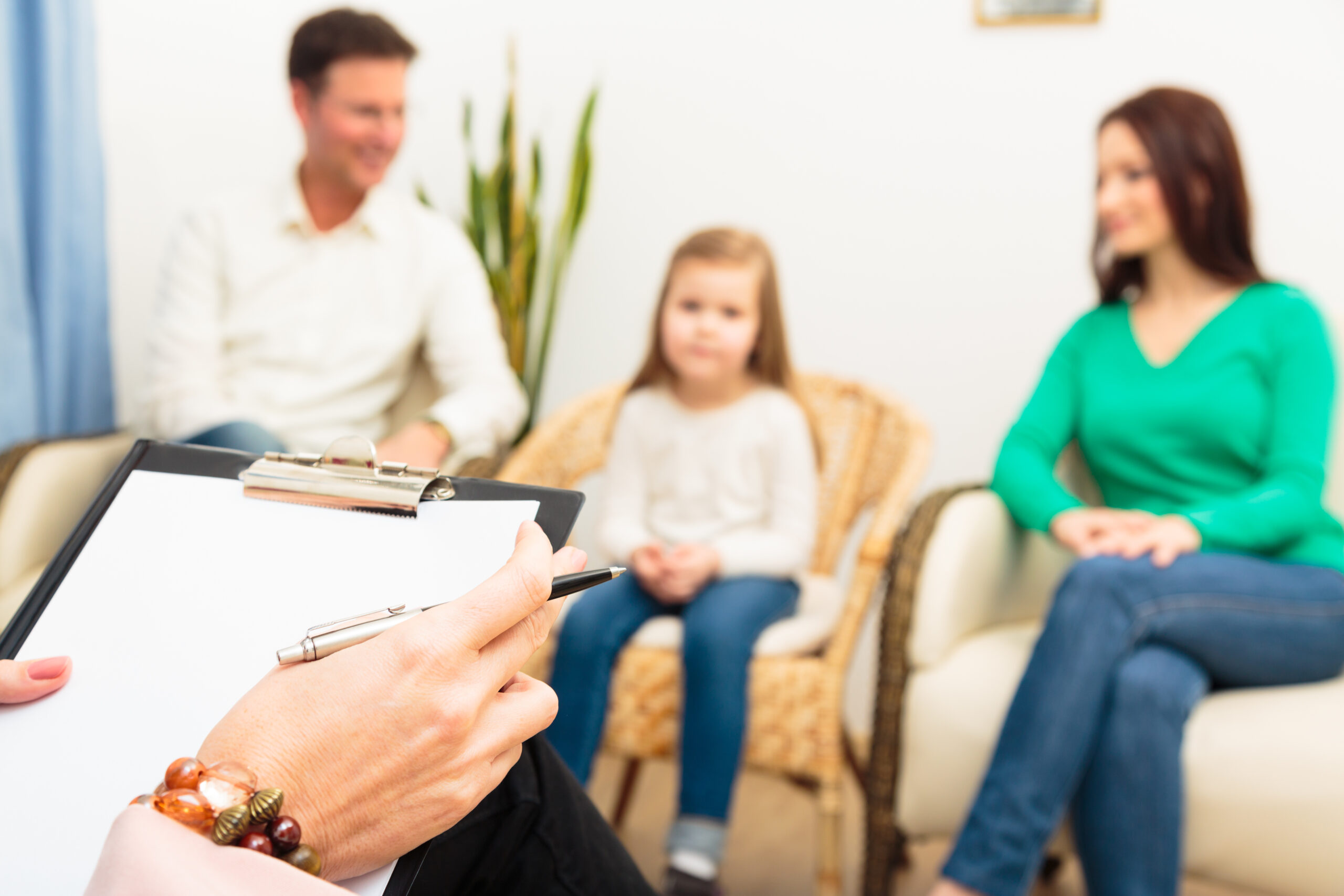Client Story
Trauma: A Family Affair

The Substance Abuse and Mental Health Services Administration (SAMHSA) defines trauma as an event or circumstance that results in physical, emotional and/or life-threatening harm. The event can impact a person’s social and/or spiritual well-being, and could include natural disasters, experiencing violence, a car accident, or a life-threatening illness.
Trauma often causes psychological and physical distress that temporarily disrupts a person’s ability to function normally in day-to-day life. This can affect the individual as well as family and friends. Being aware of common reactions to trauma and their effect on family life can improve coping and support long-term healing.
“Traumatic experiences cause a variety of reactions, but the most common are fear and feeling overwhelmed. These activate our nervous system, resulting in frequent mood fluctuations. People say they feel like they’re going crazy, but actually it’s what happened to them that is crazy. And now their brain & body are just doing the best they can to deal with it, on a daily basis,” said Becka Meier, Assistant Director of Clinical Services at The Women’s Center.
Some common reactions to trauma include:
- Experiencing strong feelings, including anxiety, fear, sadness, guilt, anger, vulnerability, helplessness, or hopelessness.
- Feeling emotionally numb, in a state of ‘shock’, detached or disconnected from everyone.
- Fearing for other’s safety, being very protective of others and a fear of leaving home or a ‘safe space’.
- Experiencing nightmares or upsetting dreams about the event.
- Suffering from physical ailments including extreme fatigue, headache, nausea, stomachache, insomnia, broken sleep, bad dreams, changed appetite, sweating and trembling, aches and pains, or a worsening of pre-existing medical conditions.
- Feeling overwhelmed by a lack of control, difficulties with concentrating or thinking clearly, short-term memory problems, difficulty planning or making decisions, inability to absorb information, recurring thoughts of the traumatic event, thinking about other past tragedies, or pessimistic thoughts.
- Behavior changes including a drop in work or school performance, using drugs or alcohol, being unable to rest or keep still, lack of motivation to do anything, increased aggressiveness or engaging in self-destructive or self-harming activities.
Each person will respond differently, and their reactions can impact family life and relationships.
- Family members may become short-tempered or irritable with each other, which can lead to arguments and friction.
- Children may be clingy, grizzly, demanding,
oract out in ways that are hurtful, or isolate. - Teenagers may become argumentative, demanding, rebellious, or isolate.
- Individuals may feel neglected and misunderstood.
- Individuals may feel less attached to or involved with others.
- Couples may experience emotional or sexual problems in their relationship.
- Individuals may feel exhausted and want support but cannot give much in return.
Becka shares her experience, “In my career, I’ve seen families become so overwhelmed that they nearly come apart at the seams. Trauma impacts each family member differently, so suddenly partners struggle to understand each other. Parents are devastated and become desperate to protect their child, but they don’t know what to do next. Therapy helps to stabilize what they’re going through and provides hope for healing.”
There are strategies families can incorporate to support healing.
- Remember that healing takes time. Cut back on unnecessary demands to lower stress and conserve everyone’s energy.
- Set aside time to be together, relax, and do something enjoyable – even if it is as simple as watching a movie together. Enjoyment and relaxation rebuild emotional energy & fosters connection.
- Encourage family members to communicate with each other, including ways they may need help.
- Recognize the family’s progress in the healing process and what has been achieved. Every step counts.
- Focus on positivity, gratitude, and encouragement—even if someone still struggles with fear and worry. Remember that families can get through the hard times and come out stronger.
When those strategies aren’t working, The Women’s Center is here to help. “We provide a continuum of care for crime/abuse trauma survivors, starting with a 24-hour Crisis Hotline and supporting survivors at the hospital. We act as a liaison through the police investigation process. Licensed therapists provide trauma therapy & play therapy for women, men and children. And, if a case goes to trial, legal services, court preparation and accompaniment are available. All services are free of charge, as cost should never be a barrier to receive the specialized support survivors deserve,” says Becka.
While incorporating the coping strategies helps many, people should consider seeking professional help if:
- They are unable to cope with your intense emotions;
- They continue to feel numb, emotionally detached and empty;
- They continue to experience physical stress symptoms, disturbed sleep or nightmares;
- They have no one with whom to share your feelings;
- They find that relationships with family and friends are suffering;
- They are using more alcohol or drugs;
- They are unable to work or manage responsibilities;
- They keep reliving the traumatic experience; or,
- They are easily startled or frequently feeling anxious.
In addition to individual therapy, The Women’s Center offers an Intro to Trauma class, for adults—both English and Spanish. These classes are held on Tuesday evenings in the Fort Worth office and Wednesday afternoons in the Arlington office. The class teaches individuals and families how to better understand trauma, how it affects daily functioning and how to use coping and self-care techniques. For more information, please call 817.927.4039.
It can be difficult to know how to support someone who has experienced trauma. Becka advises, “Let them know you are so sorry this happened to them and that you’re there for them, in any way you can be, to support them. Survivors often need two important things: safety and information. So, if you can, be a safe person—following their lead for what they need and helping them find necessary information. That will go a long way to help start their healing journey.”
Sources: https://www.betterhealth.vic.gov.au/health/healthyliving/trauma-and-families
